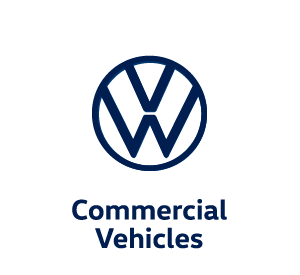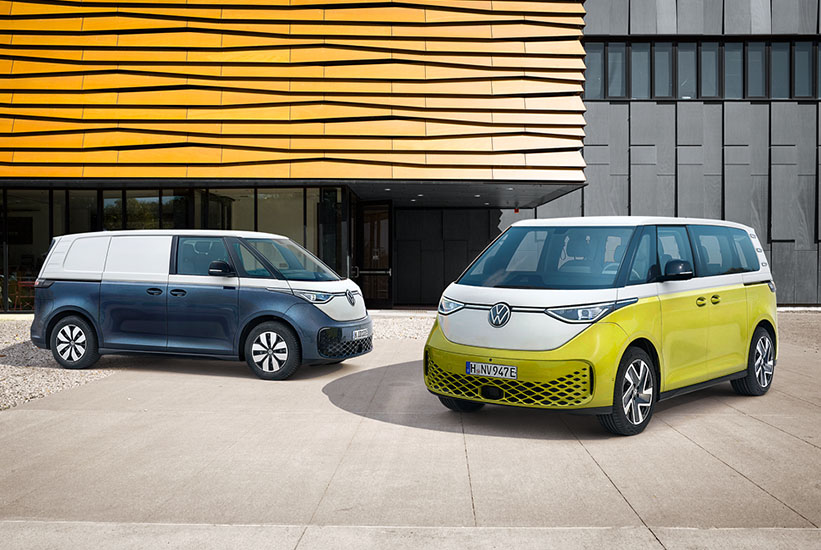Volkswagen Commercial Vehicles

The highlight at the Volkswagen Commercial Vehicles brand in the reporting period was the presentation and market launch of the all-electric ID. Buzz and ID. Buzz Cargo models. A second, completely new generation of the versatile Amarok pickup was also launched.
BUSINESS DEVELOPMENT
As a leading manufacturer of light commercial vehicles, Volkswagen Commercial Vehicles is making fundamental and sustainable changes to the way goods and services are distributed in cities in order to improve the quality of life, especially in inner city areas. In this way, the brand will continue to keep the world of tomorrow moving, with all of its requirements regarding clean, intelligent and sustainable mobility. This is what Volkswagen Commercial Vehicles stands for with its brand promise: We transport success, freedom and the future.
In fiscal year 2022, the Volkswagen Commercial Vehicles brand brought the highly acclaimed ID. Buzz to the market. The vehicle symbolizes the core elements of tomorrow’s mobility: e-mobility, digitalization, and connectivity. The ID. Buzz and ID. Buzz Cargo contain seven decades of “Bulli” know-how and also – thanks to the Volkswagen Group’s MEB platform – an electric drivetrain. The ID. Buzz is agile, efficient and dynamic and combines the attributes of the legendary T1: from the design to the tight overhangs of the bodywork and the effective use of space. The popularity of the ID. Buzz is reflected in the many awards it received in its debut year, including “German Car of the Year” and the “Golden Steering Wheel 2022”. The ID. Buzz Cargo impresses as a spacious and versatile zero-emission van and was named “International Van of the Year 2023”. The new generation of the Amarok was also presented in the reporting period. Among other things, the versatile pickup offers optimized features, numerous assistance systems (some completely new to the pickup segment), mobile online services, two all-wheel-drive systems and an efficient range of engines.
Deliveries by Volkswagen Commercial Vehicles amounted to 329 thousand units (−8.6%) in the reporting period. Sales in Germany developed particularly encouragingly (+8.3%).
Volkswagen Commercial Vehicles sold 340 thousand vehicles in the reporting period, representing an increase of 4.3% compared with the previous year. This was also thanks to the ID. Buzz, which was very positively received by the market.
In 2022, the Volkswagen Commercial Vehicles brand produced 351 thousand vehicles, 4.9% more than in the previous year.
SALES REVENUE AND EARNINGS
Volkswagen Commercial Vehicles increased sales revenue by 15.6% to €11.5 billion in fiscal year 2022. The operating result rose to €529 (73) million, due mainly to factors relating to price and mix. Lower excess CO2 emissions premiums were taken into account compared with the previous year. The operating return on sales improved significantly to 4.6 (0.7)%.
Units |
|
2022 |
|
2021 |
|---|---|---|---|---|
|
|
|
|
|
Caravelle/Multivan, Kombi, California |
|
80,698 |
|
79,379 |
Transporter |
|
67,508 |
|
80,122 |
Crafter, Grand California |
|
60,326 |
|
58,739 |
Caddy Kombi |
|
46,500 |
|
40,156 |
Amarok |
|
42,806 |
|
42,755 |
Caddy, Caddy California |
|
42,352 |
|
33,805 |
ID. Buzz |
|
11,013 |
|
– |
|
|
351,203 |
|
334,956 |
|
|
2022 |
|
2021 |
|
% |
|---|---|---|---|---|---|---|
|
|
|
|
|
|
|
Deliveries (thousand units) |
|
329 |
|
360 |
|
−8.6 |
Vehicle sales |
|
340 |
|
326 |
|
+4.3 |
Production |
|
351 |
|
335 |
|
+4.9 |
Sales revenue (€ million) |
|
11,455 |
|
9,909 |
|
+15.6 |
Operating result |
|
529 |
|
73 |
|
x |
Operating return on sales (%) |
|
4.6 |
|
0.7 |
|
|
ID. Buzz

DELIVERIES BY MARKET
in percent
